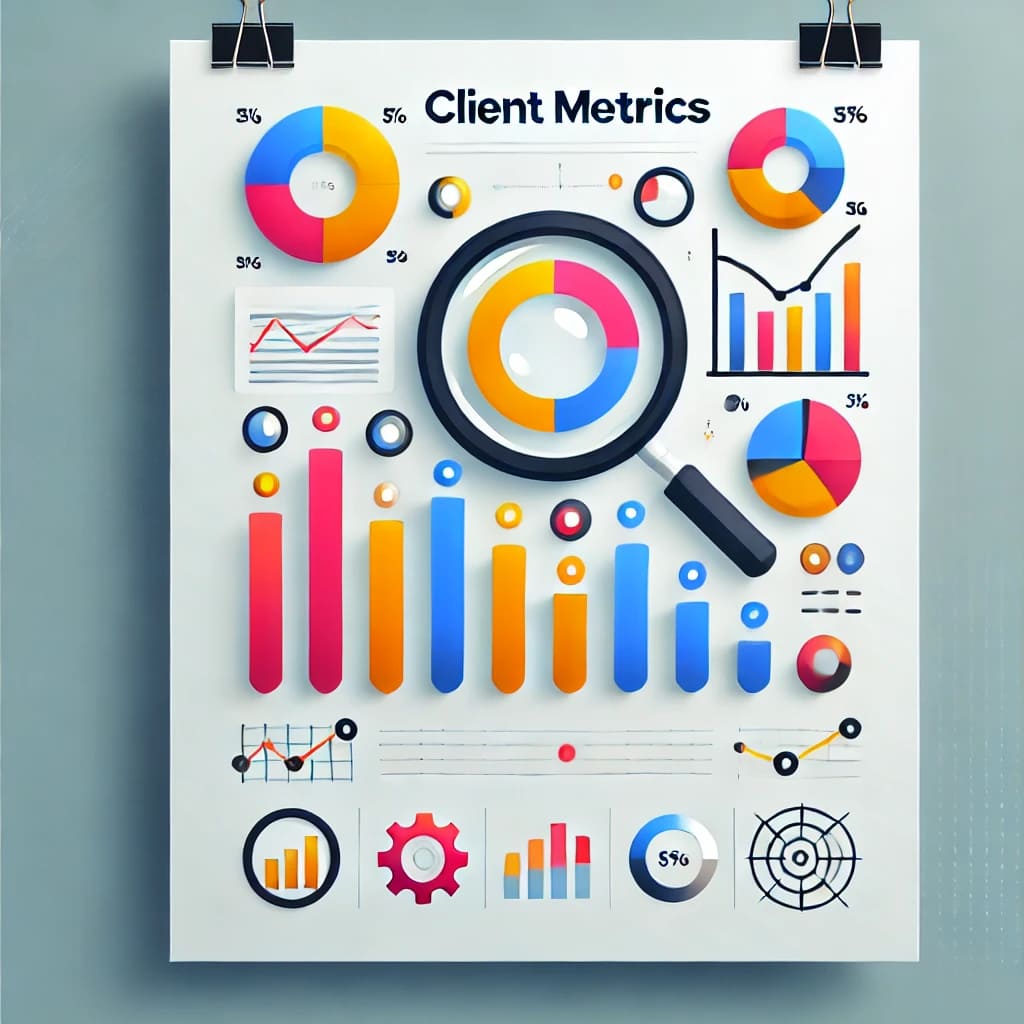Introduction
Metrics and Key Performance Indicators (KPIs) serve as the backbone of any marketing strategy, providing quantifiable measures of success or areas for improvement. This article aims to equip you with the knowledge and skills to identify, analyze, and report on the metrics that are most important to small business clients.
The Importance of Metrics and KPIs
Metrics and KPIs are not just numbers; they are the language of business performance. They offer insights into what’s working, what’s not, and where to allocate resources for maximum impact. For small businesses, understanding these metrics is crucial for making informed decisions.
Categories of Metrics
- Financial Metrics: Revenue, ROI, and profit margins.
- Customer Metrics: Customer Lifetime Value (CLV), Customer Acquisition Cost (CAC), and Net Promoter Score (NPS).
- Operational Metrics: Conversion rates, website traffic, and customer engagement levels.
- Brand Metrics: Brand awareness, brand equity, and customer satisfaction.
Identifying Client-Specific Metrics
Steps to Identify Relevant Metrics
- Understand Business Goals: Align metrics with the client’s short-term and long-term objectives.
- Consult Stakeholders: Speak with key decision-makers to understand what metrics they consider most important.
- Industry Benchmarking: Research industry-specific metrics to provide a comprehensive view.
How to Report on Metrics
Reporting Tools and Platforms
- Dashboards: Tools like Google Analytics, HubSpot, and custom CRM systems can offer real-time dashboards.
- Scheduled Reports: Automated reports can be sent weekly, monthly, or quarterly, depending on the client’s preference.
- Ad-hoc Reports: These are custom reports generated for specific needs, such as board meetings or annual reviews.
Reporting Best Practices
- Visual Aids: Use graphs, charts, and other visual aids to make the data easily digestible.
- Contextual Analysis: Always provide context for the numbers. A metric in isolation is meaningless.
- Actionable Insights: Conclude reports with actionable recommendations based on the data.
Conclusion and Takeaways
Understanding the metrics that matter most to small business clients is not just a skill but an art. It requires a deep understanding of the client’s business goals, industry norms, and the ability to translate data into actionable insights. By mastering this art, you position yourself as an invaluable asset to your small business clients, capable of driving meaningful change through data-driven strategies.



